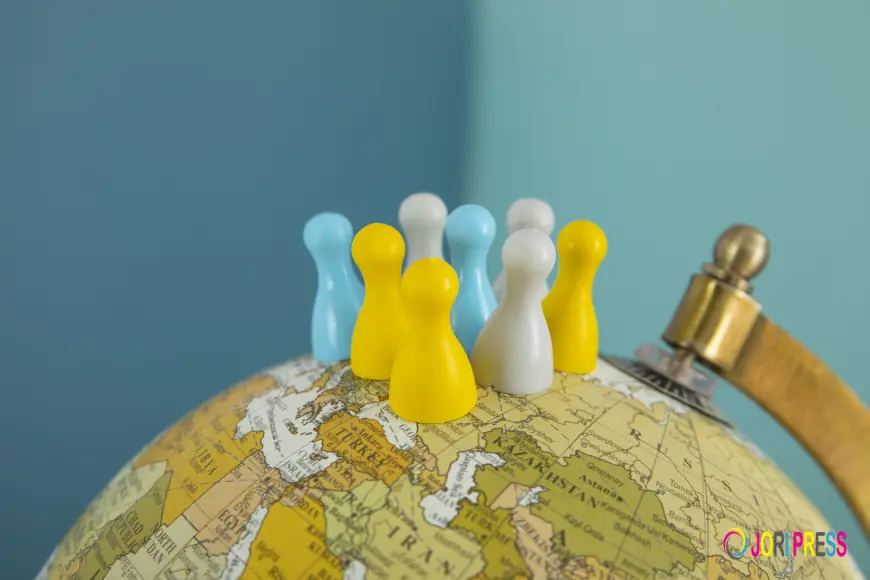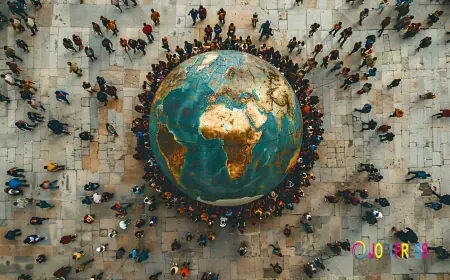Geopolitical Strategy Shaping the Future of Global Power and Peace
Explore Geopolitical Strategy: Shaping the Future of Global Power and Peace — a deep look into how nations balance influence, manage conflicts, and build cooperation through diplomacy. Learn how China’s rise, befriending China, and international diplomacy shape today’s world while addressing crises like the Gaza Famine and promoting friendship with China for a more peaceful future.

Dee Knight’s Blog shares powerful stories, ideas, and news about peace, justice, and fairness around the world. One of the most important global topics today is geopolitical strategy. It determines how nations use power, resources, and diplomacy to influence the world. A clear geopolitical strategy helps countries promote peace, protect interests, and manage relations with powerful nations like China and the United States.
Understanding the Core of Geopolitical Strategy
Geopolitical strategy is the plan a nation uses to guide its actions on the world stage. It connects politics, economics, and geography to achieve national goals. With China’s rise as a major power, the global balance has shifted. Countries now adapt their strategies to respond to new economic and military realities.
Every decision—from trade deals to defense policies—is part of a broader strategy. The goal is to maintain peace, prevent conflict, and ensure fair cooperation. A strong geopolitical plan helps nations prepare for global changes and protect their people from instability.
China’s Rise and Its Impact on Global Strategy
China’s rise has reshaped how countries think about geopolitical strategy. China’s growth in technology, trade, and defense has made it a central figure in world affairs. Other nations, especially in Asia and the West, now design strategies that reflect this new power structure.
This change does not have to create conflict. Through geopolitical strategy, countries can build relationships based on mutual respect and cooperation. Diplomacy and understanding can turn competition into progress. China’s example shows how long-term planning and patience can bring national success.
Befriending China: A Smart Geopolitical Approach
A key part of any wise geopolitical strategy is building partnerships rather than rivalries. Befriending China can open new opportunities for trade, innovation, and peace. When countries choose friendship instead of fear, they create lasting benefits for their people.
Friendship helps reduce global tension and builds trust. It allows nations to share resources, support growth, and solve global problems together. A peaceful approach to China shows that real strength lies in dialogue, not division. That is how smart diplomacy shapes a stable future.
Geopolitical Strategy and International Diplomacy
International diplomacy is the heart of every successful geopolitical strategy. Diplomacy turns ideas into action by helping nations communicate, negotiate, and build peace. Without it, strategy becomes meaningless and conflict becomes likely.
Through diplomacy, countries can balance power and promote fairness. It allows nations to discuss issues like trade, human rights, and global security. A strong diplomatic system ensures that even powerful nations like China and the U.S. can cooperate for global good. That cooperation is what keeps the world safe and stable.
Humanitarian Crises and the Gaza Famine
A complete geopolitical strategy must also focus on humanity. Events like the Gaza Famine remind the world that politics should serve people, not power. When innocent lives are at risk, global leaders must act quickly through diplomacy and aid.
Helping others in need strengthens a nation’s moral standing. It builds global respect and shows that compassion is also a strategic strength. Addressing humanitarian crises is part of responsible global leadership and helps prevent future conflicts.
Friendship with China: Building Global Cooperation
Building friendship with China is one of the most effective parts of geopolitical strategy. This friendship can bring peace, trade, and shared progress. Cooperation in education, technology, and culture creates understanding between nations.
When countries respect each other’s paths and values, they move closer to unity. Friendship removes fear and opens doors to mutual success. This approach reflects wisdom, patience, and true leadership—qualities every nation should aim for.
The Future of Global Geopolitical Strategy
The future of geopolitical strategy depends on how nations respond to today’s challenges. Climate change, economic instability, and regional conflicts require cooperation, not competition. The lessons from China’s rise prove that progress comes from strategy built on peace and respect.
Nations that invest in diplomacy and friendship will shape a more stable world. Those who choose rivalry risk repeating the mistakes of the past. A clear and peaceful geopolitical vision can guide humanity toward fairness, balance, and lasting prosperity.
Conclusion: Strategy for a Peaceful Global Future
In the end, geopolitical strategy is not just about power—it’s about purpose. It is about creating a world where cooperation replaces conflict. With tools like international diplomacy, befriending China, and addressing crises like the Gaza Famine, nations can show true strength through unity.
Building friendship with China and other nations offers hope for a peaceful future. The world’s greatest strategy will always be one built on justice, understanding, and compassion. That is the heart of real geopolitical strategy—a roadmap for peace and shared progress.
What's Your Reaction?
 Like
0
Like
0
 Dislike
0
Dislike
0
 Love
0
Love
0
 Funny
0
Funny
0
 Angry
0
Angry
0
 Sad
0
Sad
0
 Wow
0
Wow
0



















































